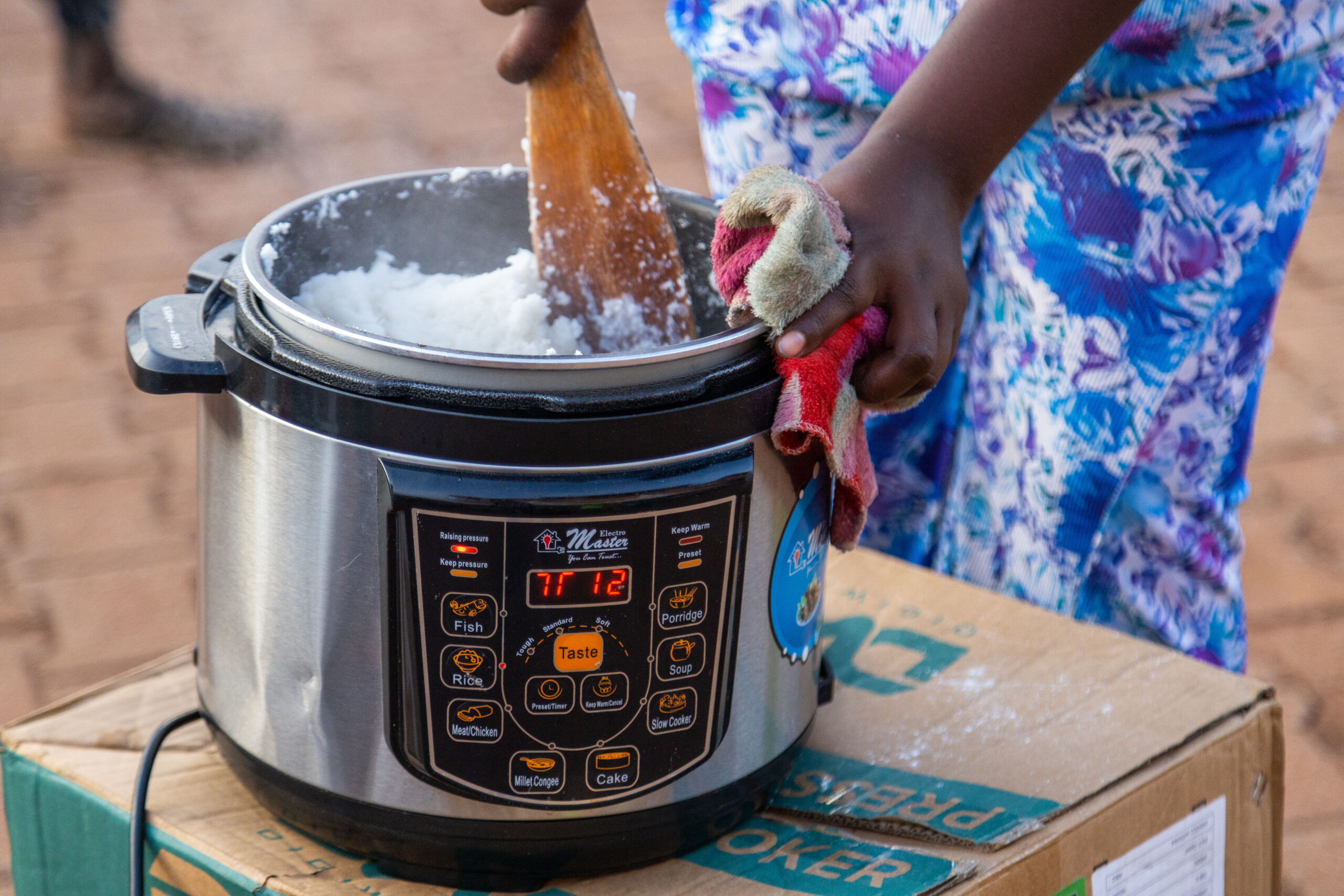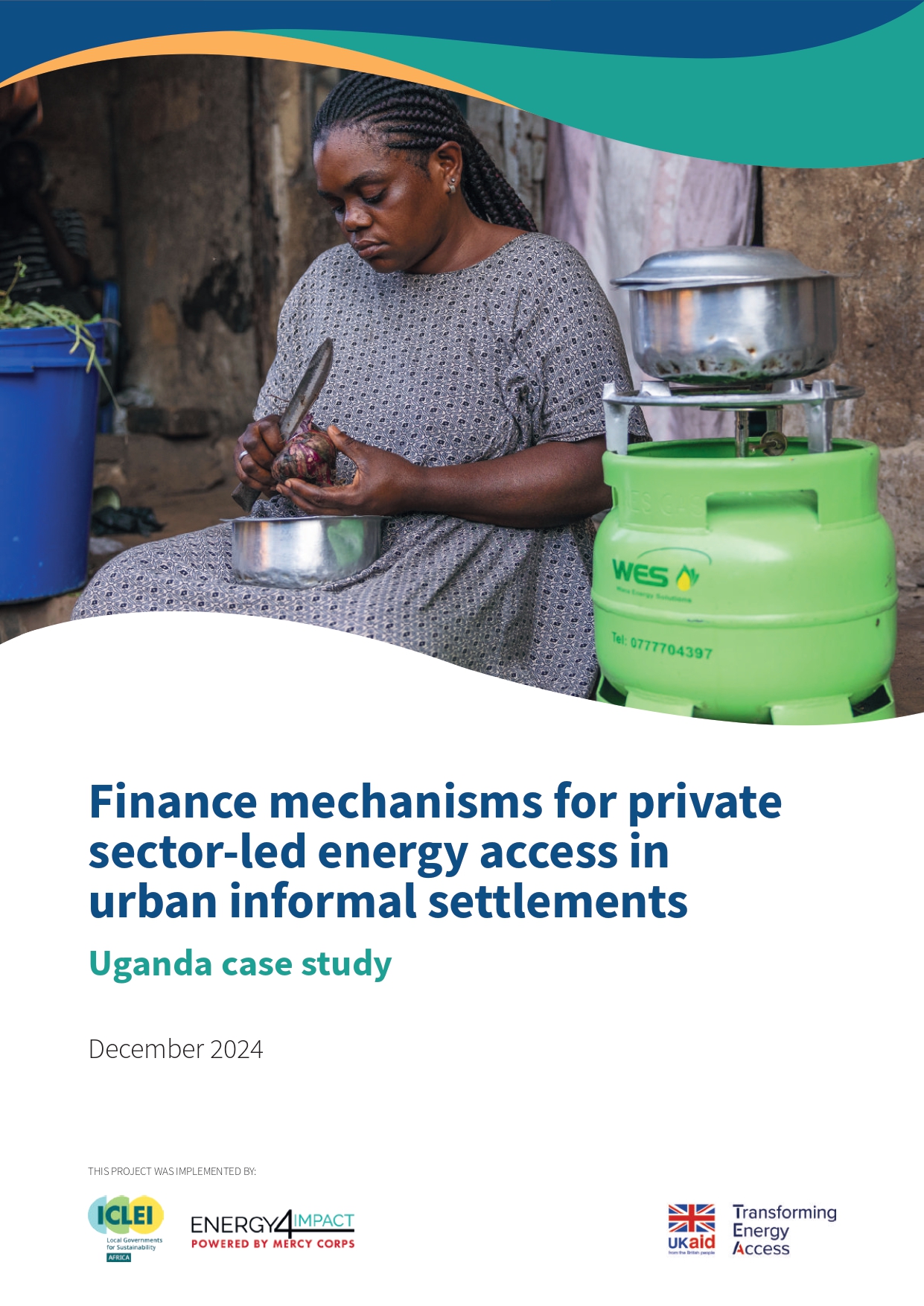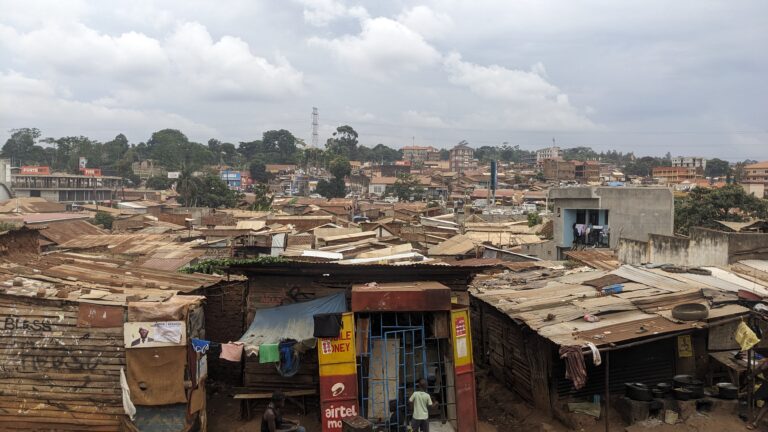Finance mechanisms for private sector-led energy access in urban informal settlements: Uganda case study




Download:
Related ICLEI Pathway(s)
About
Resource summary
As populations grow in the world’s cities, Africa and Asia are poised to gain a majority of the projected 70% population increase by 2050, triple the number from 20151. Uganda’s urban population is projected to hit 53 million by 2060, surpassing the projected 51 million rural population. Without effective urban planning, this growth will lead to the formation of new informal settlements and increased populations in the existing ones due to limited access to affordable and reliable public services such as energy. This necessitates promoting initiatives that improve affordability of such services, enabling urban communities facing economic hardship to reap the economic and health benefits of clean energy solutions.
This paper explores various finance mechanisms that would enable Energy Service Providers (ESPs) to deliver sustainable energy solutions to urban informal settlements in Uganda. While focused on clean cooking solutions, most insights presented in this paper also apply to other energy solutions, such as decentralised renewable energy and productive use appliances in the context of urban informal settlements. Financing mechanisms such as equity, debt, output-/outcome-based grants, crowdfunding, and carbon credits are reviewed through a clean cooking ESP lens. Equity and grants appear to hold the highest share of financing into the clean cooking space, although there is considerable potential in other financing mechanisms, such as carbon credits and output-based grants, which could substantially de-risk capital costs for ESPs.
Related resources

Understanding household access to cooking energy in informal Kampala

RISE Africa report 2025



